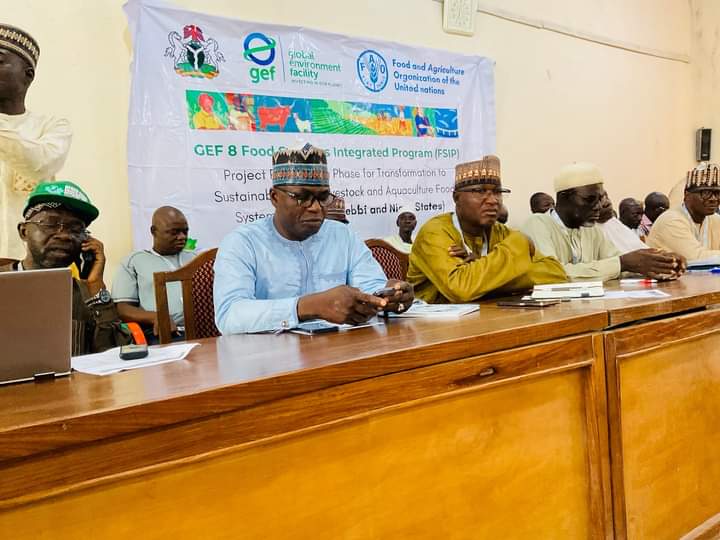ASHENEWS reports that the project preparation phase for the GEF-8 Food Systems Integrated Programme (FSIP) aimed at transforming sustainable crop, livestock, and aquaculture food systems in Nigeria has officially commenced in Niger State.
Supported by the Global Environment Facility (GEF), the initiative will provide $7.8 million in funding to both Niger and Kebbi states between 2025 and 2030 to implement projects that deliver significant environmental benefits.
During the workshop’s opening ceremony in Minna, the National Team Leader and FAO consultant under the GEF-8 program, Dr Charles Iyagbe, emphasized the importance of engaging key stakeholders to support and advance food systems in Niger State.
“We will collaborate with critical stakeholders to identify and address the key constraints limiting inclusive sustainable food systems in the state. The goal is to support youth, women, and smallholder farmers, particularly in local government areas (LGAs) along the river basins, to boost productivity while delivering environmental benefits,” Inyagbe stated.
He further highlighted the project as a crucial element in driving the agricultural revolution agenda of the Niger State government.
“We believe this will complement the Niger Foods Program and bring the necessary transformation to the agricultural sector,” he added.
The Permanent Secretary of the Niger State Ministry of Agriculture, Dr Mathew Ahmed, explained that the workshop serves as a platform to discuss the support the state will receive from GEF-8 under FAO’s leadership.
“The state is being granted $7.8 million to address environmental challenges and promote sustainable food production,” Ahmed noted.
He also elaborated on the project’s focus areas, which include enhancing the productivity of rice and maize farmers, improving livestock farming (both ruminants and non-ruminants), and developing aquaculture by utilizing the river basin’s potential to create ponds for local fishing activities.
Ahmed explained that the state is determined to maximize the opportunities the grant offers, stating, “The grant will be allocated based on how quickly and efficiently each state implements its activities and meets key performance indicators.”
The Permanent Secretary also expressed confidence that the project will create jobs for youth and women, the primary target groups.
This online platform reports that Niger and Kebbi states were selected to spearhead agricultural sustainability initiatives under this collaborative effort, led by the Food and Agriculture Organization (FAO) and the International Fund for Agricultural Development (IFAD), in partnership with the Nigerian government.
The project seeks to transform Nigeria’s food systems, ensuring sustainability and resilience, especially in the Niger-Benue River basins.


